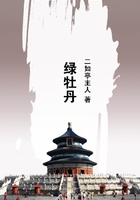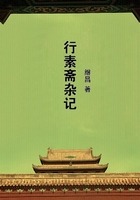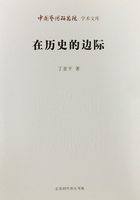There is something both lovely and touching to me in the lotus columns of Egypt, in the tall masses of stone opening out into flowers near the sun. Near the sun! Yes; only that obvious falsehood will convey to those who have not seen them the effect of some of the hypostyle halls, the columns of which seem literally soaring to the sky. And flowers of stone, you will say, rudely carved and rugged! That does not matter. There was poetry in the minds that conceived them, in the thought that directed the hands which shaped them and placed them where they are. In Egypt perpetually one feels how the ancient Egyptians loved the /Nymphaea lotus/, which is the white lotus, and the /Nymphaea coeruloea/, the lotus that is blue. Did they not place Horus in its cup, and upon the head of Nefer-Tum, the nature god, who represented in their mythology the heat of the rising sun, and who seems to have been credited with power to grant life in the world to come, set it as a sort of regal ornament? To Seti I., when he returned in glory from his triumphs over the Syrians, were given bouquets of lotus-blossoms by the great officers of his household. The tiny column of green feldspar ending in the lotus typified eternal youth, even as the carnelian buckle typified the blood of Isis, which washed away all sin. Kohl pots were fashioned in the form of the lotus, cartouches sprang from it, wine flowed from cups shaped like it. The lotus was part of the very life of Egypt, as the rose, the American Beauty rose, is part of our social life of to-day. And here, in the Ramesseum, I found campaniform, or lotus-flower capitals on the columns--here where Rameses once perhaps dreamed of his Syrian campaigns, or of that famous combat when, "like Baal in his fury," he fought single-handed against the host of the Hittites massed in two thousand, five hundred chariots to overthrow him.
The Ramesseum is a temple not of winds, but of soft and kindly airs.
There comes Zephyrus, whispering love to Flora incarnate in the Lotus.
To every sunbeam, to every little breeze, the ruins stretch out arms.
They adore the deep-blue sky, the shining, sifted sand, untrammeled nature, all that whispers, "Freedom."
So I felt that day when Ibrahim left me, so I feel always when I sit in the Ramesseum, that exultant victim of Time's here not sacrilegious hand.
All strong souls cry out secretly for liberty as for a sacred necessity of life. Liberty seems to drench the Ramesseum. And all strong souls must exult there. The sun has taken it as a beloved possession. No massy walls keep him out. No shield-shaped battlements rear themselves up against the outer world as at Medinet-Abu. No huge pylons cast down upon the ground their forms in darkness. The stone glows with the sun, seems almost to have a soul glowing with the sense, the sun-ray sense, of freedom. The heart leaps up in the Ramesseum, not frivolously, but with a strange, sudden knowledge of the depths of passionate joy there are in life and in bountiful, glorious nature. Instead of the strength of a prison one feels the ecstasy of space; instead of the safety of inclosure, the rapture of naked publicity. But the public to whom this place of the great king is consigned is a public of Theban hills; of the sunbeams striking from them over the wide world toward the east; of light airs, of drifting sand grains, of singing birds, and of butterflies with pure white wings. If you have ever ridden an Arab horse, mounted in the heart of an oasis, to the verge of the great desert, you will remember the bound, thrilling with fiery animation, which he gives when he sets his feet on the sand beyond the last tall date-palms. A bound like that the soul gives when you sit in the Ramesseum, and see the crowding sunbeams, the far-off groves of palm-trees, and the drowsy mountains, like shadows, that sleep beyond the Nile. And you look up, perhaps, as I looked that morning, and upon a lotus column near you, relieved, you perceive the figure of a young man singing.
A young man singing! Let him be the tutelary god of this place, whoever he be, whether only some humble, happy slave, or the "superintendent of song and of the recreation of the king." Rather even than Amun-Ra let him be the god. For there is something nobly joyous in this architecture, a dignity that sings.
It has been said, but not established, that Rameses the Great was buried in the Ramesseum, and when first I entered it the "Lay of the Harper" came to my mind, with the sadness that attends the passing away of glory into the shades of death. But an optimism almost as determined as Emerson's was quickly bred in me there. I could not be sad, though I could be happily thoughtful, in the light of the Ramesseum. And even when I left the thinking-place, and, coming down the central aisle, saw in the immersing sunshine of the Osiride Court the fallen colossus of the king, I was not struck to sadness.
Imagine the greatest figure in the world--such a figure as this Rameses was in his day--with all might, all glory, all climbing power, all vigor, tenacity of purpose, and granite strength of will concentrated within it, struck suddenly down, and falling backward in a collapse of which the thunder might shake the vitals of the earth, and you have this prostrate colossus. Even now one seems to hear it fall, to feel the warm soil trembling beneath one's feet as one approaches it. A row of statues of enormous size, with arms crossed as if in resignation, glowing in the sun, in color not gold or amber, but a delicate, desert yellow, watch near it like servants of the dead. On a slightly lower level than there it lies, and a little nearer the Nile. Only the upper half of the figure is left, but its size is really terrific. This colossus was fifty-seven feet high. It weighed eight hundred tons. Eight hundred tons of syenite went to its making, and across the shoulders its breadth is, or was, over twenty-two feet.
But one does not think of measurements as one looks upon it. It is stupendous. That is obvious and that is enough. Nor does one think of its finish, of its beautiful, rich color, of any of its details. One thinks of it as a tremendous personage laid low, as the mightiest of the mighty fallen. One thinks of it as the dead Rameses whose glory still looms over Egypt like a golden cloud that will not disperse. One thinks of it as the soul that commanded, and lo! there rose up above the sands, at the foot of the hills of Thebes, the exultant Ramesseum.















